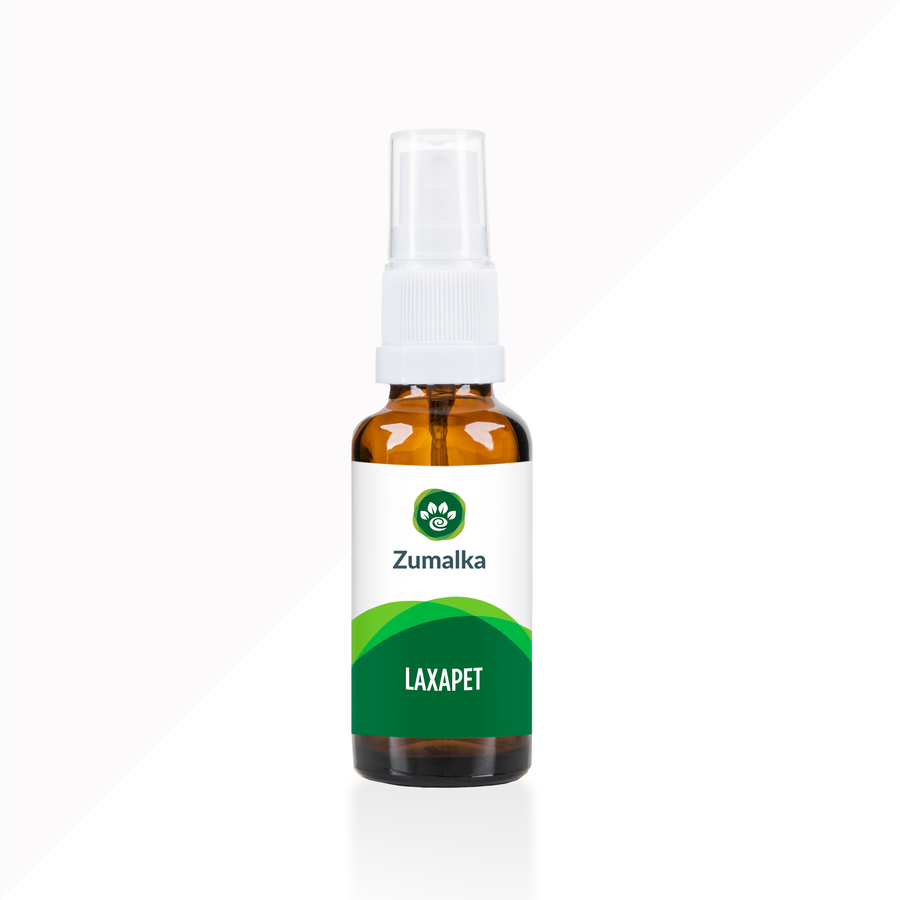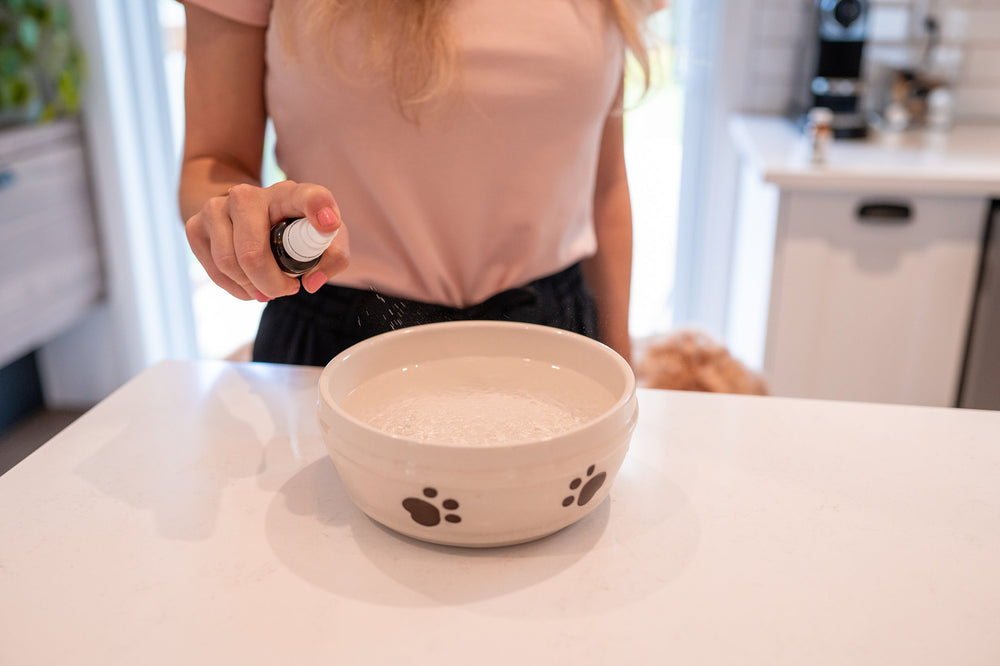Dog Constipation: Vet-Verified Causes, Symptoms, and Treatments
Dog constipation occurs when hard, dry stool is difficult to pass from the colon. It can range from occasional, mild cases—often called "simple" constipation—to more frequent, severe cases that could lead to a condition called megacolon.
In this article, we'll focus on managing occasional constipation in dogs, with a brief overview of what to watch for in chronic cases.
What Causes a Dog's Constipation?

Dogs can become constipated for a variety of reasons. Here are some of the most common causes you should be aware of:
- Chronic dehydration: Dogs (and cats) with underlying conditions like kidney or liver disease are often chronically dehydrated. This can result in harder, less than normal bowel movements, leading to recurrent constipation.
- Diet: The most common underlying cause of simple constipation in dogs is diet. In my experience, dogs on raw meat diets (which often include raw meat, ground bone, and minimal fiber or carbohydrates) frequently suffer from constipation due to the lack of dietary fiber.
- Eating foreign material: Dogs that ingest things like fur, bones, or gravel are at a higher risk of constipation. These materials can create blockages or harden in the intestines as soon as they reach your dog's abdomen, making it difficult to pass stool.
- Drugs: Certain medications, such as opioids, kaolin, pectin, and antihistamines, can lead to constipation or fecal impaction by slowing down the digestive process. Be aware of these side effects if your dog is taking these drugs for other conditions.
- Obstruction: Tumors within the colon, foreign objects, or an enlarged prostate can block the digestive tract, making it difficult for a dog to defecate. Many pet parents may initially overlook these more serious causes of constipation, so it's important to consult a vet if symptoms persist.
Constipation in Dogs: Why a Vet Visit Is Key to Treatment
If you suspect your dog is constipated, it's best to consult a veterinarian right away. Constipation is painful for your pet, and attempting to administer an enema yourself or insert anything into the rectum can result in injury or even a bite in other dogs. In severe cases, constipation may be a medical emergency, so professional care is crucial.
How Exactly Do You Treat Constipation in Dogs?

So, you're planning to take your dog to the vet. What can you expect from the visit?
Constipation can lead to dehydration. If your vet suspects your dog is dehydrated, they may administer IV fluids to support hydration and relieve constipation.
Additionally, veterinarians use enemas to safely remove impacted fecal material from the colon. Since the procedure can be uncomfortable for dogs, it’s typically done under sedation. Enemas are a gentle method that use little to no chemicals, making them a safe option for treating constipation.
I typically use a solution of warm water and lubricating gel, administering it directly into the rectum. This helps soften and flush out the stool from the colon. Rectally administered emollient laxatives, such as dioctyl sodium sulfosuccinate, are sometimes used to help the stool retain water, making it easier to pass.
What about oral laxatives for dogs?
Lactulose is a commonly used oral laxative for dogs. It works by softening the stool and increasing water retention in the colon, which stimulates the natural muscle contractions (peristalsis) that move stool through the intestines. However, it's crucial to only give oral laxatives to well-hydrated dogs, as they can potentially cause dehydration.
Are there alternative medications for treating constipated dogs?
Yes, dogs with recurring constipation are often prescribed medications like cisapride or ranitidine. These are known as prokinetic drugs, meaning they promote gastric motility in the colon, helping dogs to pass stool more easily.
Signs That You Have a Constipated Dog

If your dog is constipated, it will typically exhibit a few key symptoms, including:
- Painful defecation lasting from a few days to a week.
- Tenesmus, which is straining and attempting to defecate with little to no success.
As constipation worsens, most dogs lose their appetite and become lethargic. In a clinical setting, veterinarians may detect hardened feces in the colon during a thorough physical examination, along with signs of abdominal pain. Blood tests may also be performed to check for underlying issues or dehydration.
Home Remedies You Can Use During Dog Constipation

Do you have a constipated dog? Here are a few natural ways to help support their healing and recovery.
Psyllium husk
Psyllium husk is an effective, all-natural remedy for preventing and treating mild constipation in dogs. This nonfermentable soluble fiber forms a gel in the colon, acting as a natural lubricant to help the quick and easy passage of stool. Be sure to give psyllium with plenty of water.
Incorporating psyllium husk into your dog's diet can improve stool quality and promote a healthy gut microbiome. For small dogs, mix 1 to 2 teaspoons into their meals once a day. For large dogs, use 3 to 4 teaspoons per meal.
Wheat bran
Wheat bran is an excellent all-natural remedy for treating and preventing mild constipation in your canine friend. It works differently from psyllium husk, as it's an insoluble fiber that increases the water content in fecal matter, softens the stool, and promotes normal, healthy bowel movements.
Although there's no standard dosage for dogs, I have found that 1 to 2 tablespoons twice a day, mixed in with their meal, to be effective.
Zumalka PROBIOPET
PROBIOPET is like a comforting hug for your pet's tummy! This natural supplement is designed to boost your furry friend's digestion while harmonizing their gut flora and supporting their immune system. With over 12 billion probiotic bacteria per dose, it helps keep your pet feeling their best.
Depending on your pet's needs, give 1 to 3 capsules daily and notice the improvements in their overall digestive health.
Zumalka LAXAPET
LAXAPET is designed to promote normal elimination and support overall colon health. It helps alleviate common symptoms of constipation, such as hard, dark, lumpy stools, painful or difficult bowel movements, incomplete elimination, and flatulence.
This premium natural product offers a safe and effective way to support your pet’s digestive comfort and well-being.
Acupuncture
Acupuncture, a traditional Chinese medicine, involves inserting fine needles at specific points on the body to alleviate symptoms of various medical conditions. Studies suggest that acupuncture may help relieve a dog's constipation by increasing bowel movements, improving comfort, and supporting better stool formation through enhanced digestive function.
You May Need to Change Up Your Dog's Diet
If your dog has chronic constipation, your vet may recommend a low-residue diet. Though changing diets can seem daunting, it helps! Low-residue diets are easier to digest because they contain minimal fiber and ash, reducing the workload on the colon.
These diets are more digestible than regular dog food and typically come in prescription options like Hills I/D, Royal Canin Gastro, and Purina EN.







Leave a comment